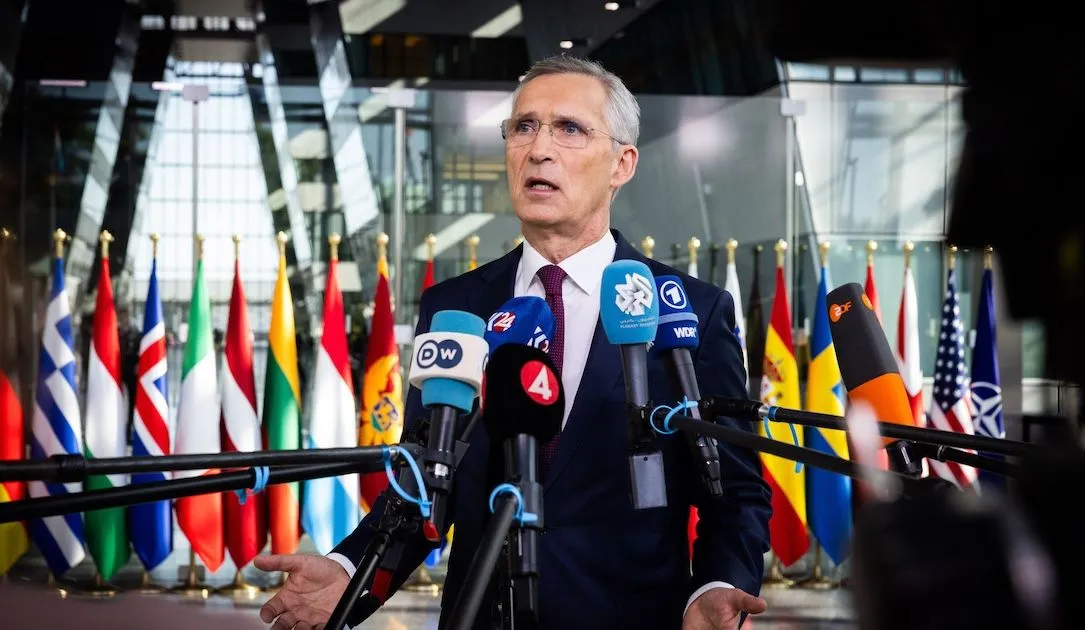NATO to tackle Russian spying and sabotage operations, says Stoltenberg
NATO allies will adopt a range of measures to protect themselves from hostile Russian activities including sabotage and spying, the alliance’s secretary general, Jens Stoltenberg, said on Thursday.
Speaking ahead of a two-day meeting between NATO defense ministers in Brussels, Stoltenberg described recent incidents of sabotage, attempted arson, cyberattacks and disinformation as part of a “Russian campaign of hostile activities against NATO allies.”
Stoltenberg said allies will “work on NATO response options, which I expect will include increased awareness, exchange of information, intelligence, step up the protection of critical infrastructure, including undersea infrastructure and cyber, and also tighter restrictions on Russian intelligence personnel across the alliance.”
Allies are likely to limit new diplomatic accreditations from the Russian Federation, and to try and limit activities with partner countries who are hosting “recycled” intelligence officers that have previously been expelled from NATO states.
There is a particular concern that these intelligence officers, despite having already been “burned” are continuing to run hostile operations, particularly from Balkan states such as Bosnia and Herzegovina or Serbia.
The moves align with what the United Kingdom announced in May as a “major package of measures to target and dismantle Russian intelligence gathering operations” in Britain.
Those measures included declaring persona non grata the Russian defense attaché in London, whom the British government described as an undeclared military intelligence officer, as well as removing the diplomatic premises status from several Russian properties.
London also introduced new restrictions for Russian diplomatic visas, including a cap on the length of time that Russian diplomats are allowed to spend in Britain. The action was described as responding to “a pattern of malign activity carried out both here and abroad.”
In particular the government cited ongoing cases against six Bulgarian nationals who are accused of conspiring to commit espionage activities in the UK on behalf of Russia.
Two British nationals have also been charged with helping Russian intelligence over a suspected arson attempt against a logistics business in London linked to Ukraine, alongside malign cyber activity targeting MPs and think tanks.
Last month, the North Atlantic Council, NATO’s political executive, announced that the alliance was “deeply concerned about recent malign activities on Allied territory, including those resulting in the investigation and charging of multiple individuals in connection with hostile state activity.”
A range of activities have come to light following counterintelligence efforts in Czechia, Estonia, Germany, Latvia, Lithuania, Poland and the United Kingdom. NATO described these as “part of an intensifying campaign of activities which Russia continues to carry out across the Euro-Atlantic area, including on Alliance territory and through proxies.”
Security agencies and governments across Europe are increasingly warning about the threat posed by Russia-directed saboteurs operating on their territories, although these are often conducted by non-Russian nationals to provide the Kremlin with deniability.
Alexander Martin
is the UK Editor for Recorded Future News. He was previously a technology reporter for Sky News and is also a fellow at the European Cyber Conflict Research Initiative.

